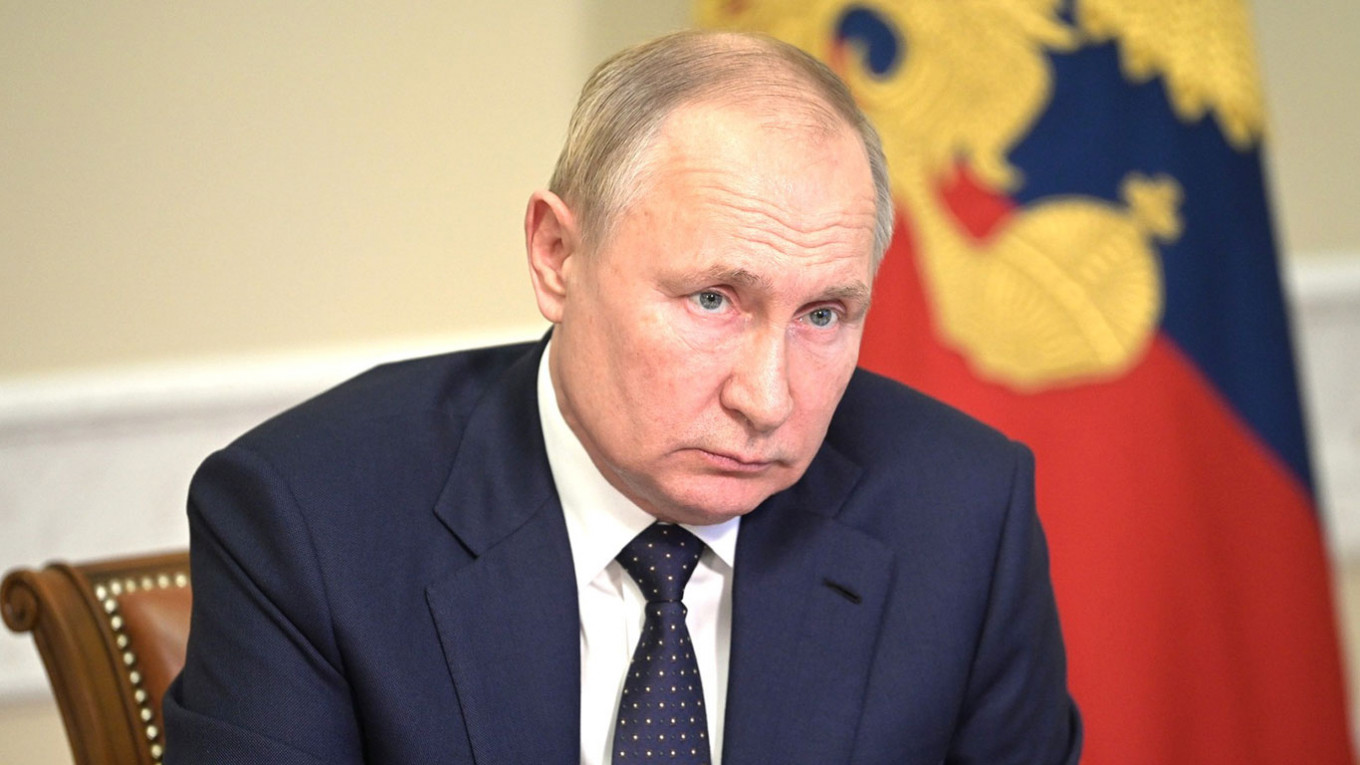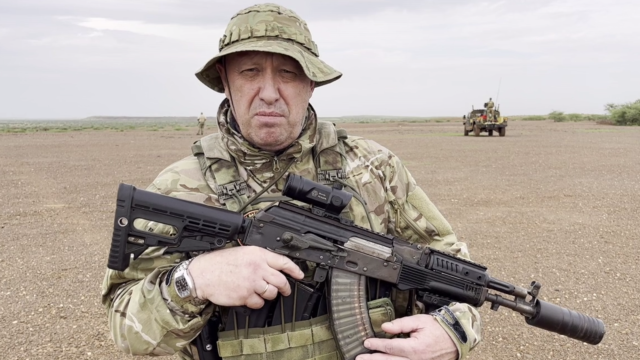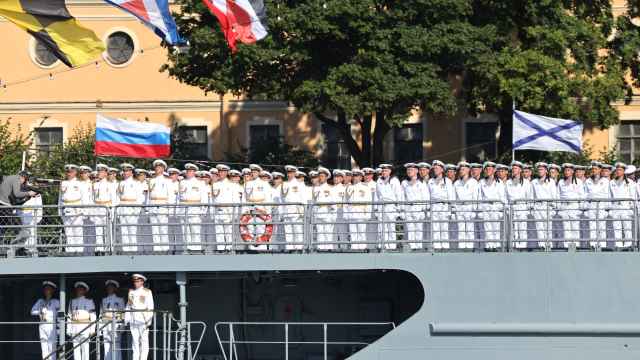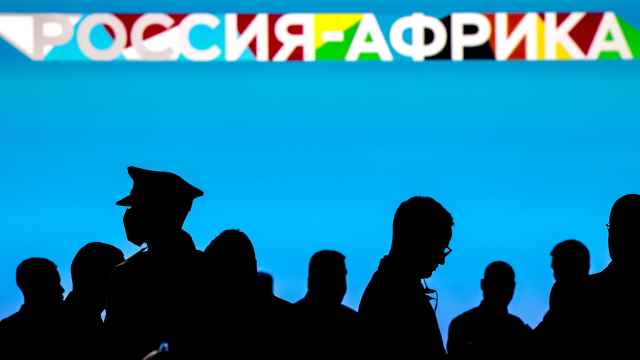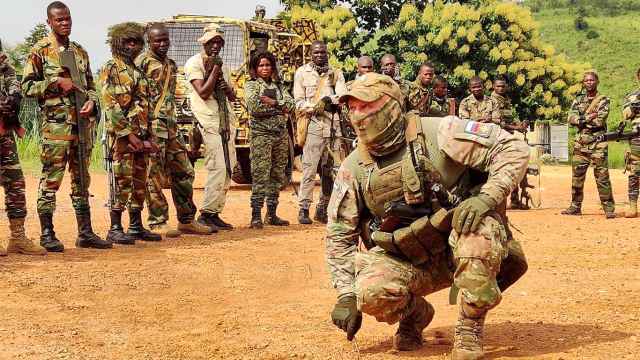The Central African Republic has presented Russian President Vladimir Putin with a portrait made of butterfly wings, a traditional gift signaling the increasingly close ties between the two countries.
The CAR's ambassador to Russia, Leon Dodonou-Pounagaza, told state news agency RIA Novosti in an interview published Tuesday that he had presented the Kremlin chief with "a large portrait of him made of butterfly wings."
Collages created from the wings of butterflies are a prized art form in the CAR, and provide a living for many hunters, who comb the forest for coveted specimens.
The ambassador, who like Putin studied law at the University of Leningrad during the Soviet era and said they had "crossed paths there," also offered the president a large wooden table marked with writing commemorating their days at the school.
The two gifts were transferred to Putin through the Foreign Ministry, said the envoy, who has been posted in Moscow since the end of 2020.
Asked about the gifts during a call with reporters, Kremlin spokesman Dmitry Peskov said he would check they had been received and get back to journalists with Putin's impressions.
The impoverished landlocked country is home to hundreds of species of tropical butterfly, some of which are rare or unique.
No details were available about how many butterflies were used to make the portrait or which species.
The CAR has become a symbol of Russia's attempts to return to its Soviet-era influence in Africa.
Its president, Faustin Archange Touadera, has sought close military and economic ties with Moscow since 2018, with Russia sending "military instructors" to the country.
The CAR has become a key area in the controversy over the role in Africa of the Wagner mercenary group which is allegedly run by businessman Yevgeny Prigozhin, an ally of Putin.
The paramilitaries have helped CAR government forces recapture from rebels much of the two-thirds of the country they once controlled.
The group has been accused of abuses in the CAR and Libya and has reportedly discussed a major contract with Mali.
A Message from The Moscow Times:
Dear readers,
We are facing unprecedented challenges. Russia's Prosecutor General's Office has designated The Moscow Times as an "undesirable" organization, criminalizing our work and putting our staff at risk of prosecution. This follows our earlier unjust labeling as a "foreign agent."
These actions are direct attempts to silence independent journalism in Russia. The authorities claim our work "discredits the decisions of the Russian leadership." We see things differently: we strive to provide accurate, unbiased reporting on Russia.
We, the journalists of The Moscow Times, refuse to be silenced. But to continue our work, we need your help.
Your support, no matter how small, makes a world of difference. If you can, please support us monthly starting from just $2. It's quick to set up, and every contribution makes a significant impact.
By supporting The Moscow Times, you're defending open, independent journalism in the face of repression. Thank you for standing with us.
Remind me later.


